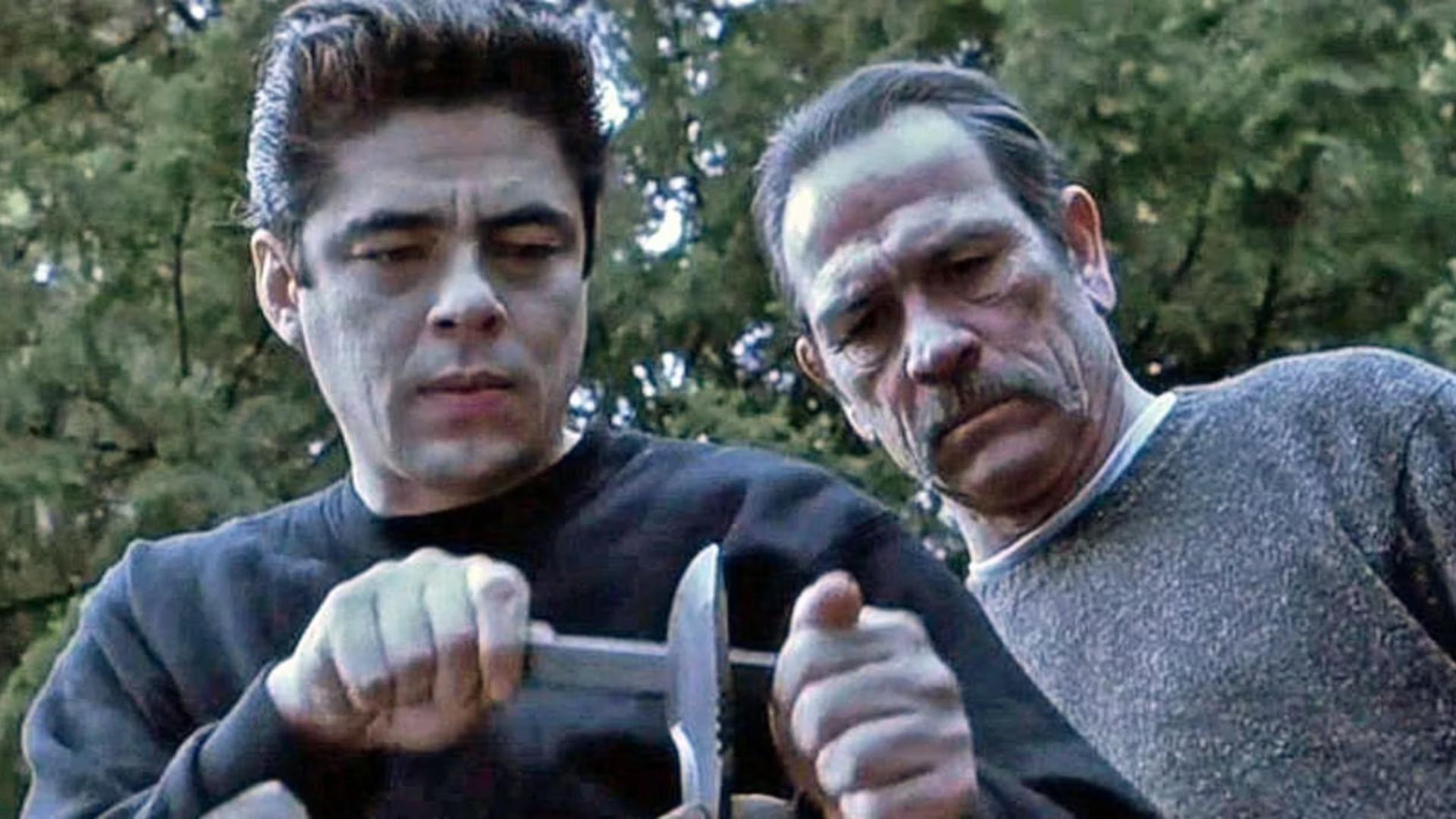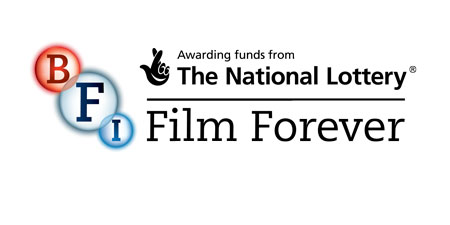LUMI X BFF: The Hunted Review
11 November 2024
Examine the Art of Action screening of The Hunted at Belfast Film Festival with LUMI Programmer Dylan Kelly.

After getting my hands on a film festival programme I always look for “hidden gems”, the re-releases of older films that I never got to see on the big screen. While it is exciting to see my personal favourite films earning a spot in the line-up, it is even more exciting when a film I have never even heard of is given another chance. At this year’s Belfast Film Festival, that film was William Friedkin’s The Hunted (2003).
The last of a three-film retrospective on the “Art of Action” in William Friedkin’s legendary career, The Hunted was described in the Belfast Film Festival booklet as his bitter, cynical resignation to the societal corruption that fuelled the anger of his earlier, Oscar-winning The French Connection (1971) and the stylish To Live and Die in L.A. (1985). As William Friedkin’s final Hollywood film, The Hunted marks both an end and a new beginning in American action cinema. The film, which follows an AWOL super-soldier affected by PTSD from the Kosovo war (Benicio Del Toro), is a timely allegory of American military engagement released mere days before the U.S. invasion of Iraq. Also starring Tommy Lee Jones as Del Toro’s regretful combat instructor who “made him the killing machine he is”, this film’s all-star cast makes it a curious hidden gem. Why was this film forgotten, and why is it worth revisiting it now?
In his introduction to the film at the Beanbag Cinema (which is a cinema that lives up to its promising name), Ruairi McCann explained that the film was William Friedkin’s final Hollywood film. It marked the ends of his attempt to rebrand himself as a studio craftsman, an image that contradicts our vision of Friedkin as an unpredictable maverick. This series of films, all made for Paramount Pictures, reflect the changing landscape of Hollywood cinema in the 2000’s. Gone is the slow-moving character building of The French Connection or The Exorcist: The film begins immediately in the clutches of a war-torn Kosovo. Benicio Del Toro (or his stunt double) nimbly vaults through the fire and rubble, silently watching the mass graves filling up. After brutally murdering the Serbian military general behind the slaughter, Del Toro is awarded a Silver Star for his valour in combat. However, the images he saw in Kosovo continue to haunt him and he develops a PTSD-like disorder (conveyed through a rather cliché montage). These may be images of Kosovo, but the contemporary context of the Afghanistan war looms largely in the background – the film was shot in 2002. That’s part of the problem with The Hunted: the rest of the film takes place in America, and it feels like the Kosovan context is interchangeable with any number of deliberately vague military contexts. Much like the beginning of To Live and Die in L.A., with its caricature of an Islamic Fundamentalist Jihad that is played for laughs, Friedkin is only interested in an Orientalist Middle East. It’s fertile soil for exotic imagery and religious symbolism, but he never substantially integrates or interrogates these images in his wider narratives. This isn’t a big problem for To Live and Die, but The Hunted’s repeated insistence on returning to that symbolism gets old fast.
Tommy Lee Jones’ character is also getting old fast. His portrayal of a nature-loving hermit who is out-of-touch with modern society is a notable precursor to his later character work in No Country for Old Men (2008). Unfortunately, his weary, regretful character is betrayed by the abundance of improbable fight-sequences. During the climax, we are expected to accept that he can beat an AWOL super-soldier – who is half his age – in a ju-jitsu knife-fight on the side of a waterfall… While the climatic fight is discardable, the long “hunting” sequence where Jones tracks Del Toro through the streets of Portland is vintage Friedkin. These three films were programmed for their shared love of car-chases and while this chase is much shorter than the more famous sequences it is still must-watch cinema. Friedkin’s background as a documentary filmmaker is obvious here. Despite the heightened spectacle of a multi-car pile-up, Friedkin is able to capture the peculiar geography of the metropolitan streets. Skate-parks, street performers and cyclists all add texture to the action. This tangible environment adds a tension to the scene that is otherwise absent in the bombastic CGI action films of the 2000’s.
Ultimately, all of Friedkin’s films express a deep loathing for the politics of the United States. However, they are almost exclusively framed through the lives of cops. He has even been accused of “copaganda”. This is an overstatement. Just look at his forthright anger towards homophobic violence in Cruising (1980) or his criticism of religious dogmatism in The Exorcist (1973) to see Friedkin’s long history of deliberately enraging conservative reactionaries. However, The Hunted highlights certain limitations to his style of political engagement. As a reflection on the Afghan war, released mere days before the American invasion of Iraq, it is as prescient a topic as any political filmmaker could wish for. Sadly, the film says nothing substantial about the cycles of Imperialist violence and their delayed but very real haunting of American metropolises. The film reduces the situation to an interpersonal conflict between two estranged men, and the sombre but hopeful ending strikes a thudding false note. Even ignoring our hindsight of Iraq, Friedkin seems to be suggesting that Tommy Lee Jones’ character has absolved himself of guilt. His character remains friendly with the FBI agents that helped tracked down Del Toro, even inviting them to visit his cabin in British Columbia. This tame ending nullifies any structural critique that was previously suggested, losing the rage that makes Friedkin’s better films unforgettable to this day.
Friedkin championed film and was a champion of film in his own right. The Belfast Film Festival highlighted the depth and scope of a career that is too often reduced to his (admittedly spectacular) films from the 1970s. While The Hunted can only be recommended to Friedkin completionists, the showing gave us all an opportunity to pay our respects to a filmmaker who embodied the “art of action” for over six decades.




